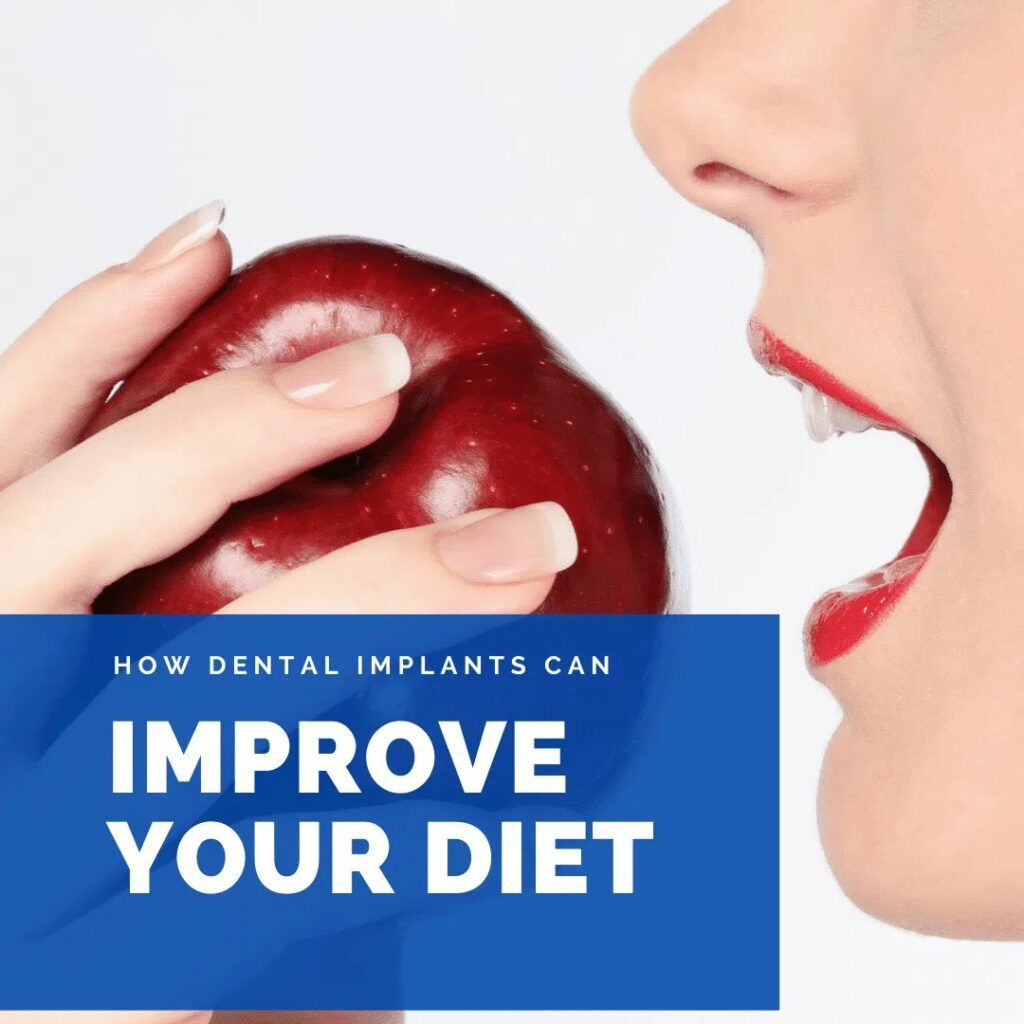Chances are you’ve heard the popular saying you are what you eat. While you are not literally what you eat, the things you eat have a strong impact on your health and overall well-being. For this reason, it is important to eat a diet that contains meat, fish, poultry, fruits, vegetables, and nuts. Unfortunately, if you have one or more missing teeth, eating a properly balanced diet can be quite the challenge. Even damaged or decayed teeth can cause pain while chewing that makes eating healthy increasingly difficult.
For starters, loose, missing, or painful teeth hinder the ability to chew on fibrous foods like fruits, vegetables, and nuts. Dietary fiber offers many benefits to your oral health such as reducing cholesterol, promoting blood sugar regulation, maintaining a healthy weight, and stimulating the digestive tract. Additionally, fruits and vegetables have a variety of other essential nutrients that your body needs for proper functioning.
However, people who cannot easily chew these foods tend to eat a soft foods diet that contains more cholesterol and less protein, vitamins, and minerals. Over time, this can lead to malnutrition, as well as certain vitamin and mineral deficiencies that can affect both your oral and overall health. Certain vitamin and mineral deficiencies can cause oral manifestations like a swollen tongue, cracked lips, mouth ulcers, inflamed mouth, burning tongue, dry mouth, and an inability or reduced ability to taste. This type of diet can also cause a range of medical conditions, such as high cholesterol and heart disease.

When it comes to replacing missing teeth, partial and full dentures are a common choice. Partial dentures fit around remaining teeth to fill the spaces left by missing teeth, while full dentures sit on top of the gums and act as fake teeth. While dentures do restore the look of your smile and allow for chewing, many denture wearers note that eating with dentures is not enjoyable. There are a variety of reasons why eating with dentures can be a challenge.
One reason is the fact that dentures are made out of plastic, which limits their ability to cut and grind up food like natural teeth. This means that chewing takes more effort. In fact, studies have found that dentures only restore about 20-25% of your original bite force. Additionally, dentures tend to slip and shift while chewing. Not only does this make it difficult to chew your food, but it also allows food pieces to get stuck underneath the denture. Overall, people who wear dentures are still unable to eat harder foods and struggle to maintain a balanced diet.
The inability to eat hard, crunchy, or chewy foods is one common reason why denture-wearers eventually decide to transition to dental implants. It is also a reason why some people choose to skip dentures altogether and go straight to having dental implants placed. Not only do dental implants make eating easier and not painful, but they also restore almost all your original bite force. With dental implants, you are able to return to eating the same foods that you ate before losing one or more teeth.

Sound too good to be true? Well, it is true. The reason why dental implants can restore almost all your original bite force is because of their structure. While dentures sit on top of the gums and are held in place with suction, dental implants are placed in the jawbone and use the surrounding bone as an anchor. Not only that, but dental implants are made from titanium and the tooth prosthetic is usually made from porcelain, which are both much stronger than the plastic used to fabricate dentures.
Although there are some dietary restrictions associated with dental implants, these are only temporary until the implant heals. After the implant has healed, it is strong enough to eat hard tough foods. This is important because it allows you to return to eating a balanced diet, which decreases the risk of malnutrition, vitamin and mineral deficiencies, and medical conditions caused by an unhealthy diet. Not to mention, you get to enjoy eating again!

